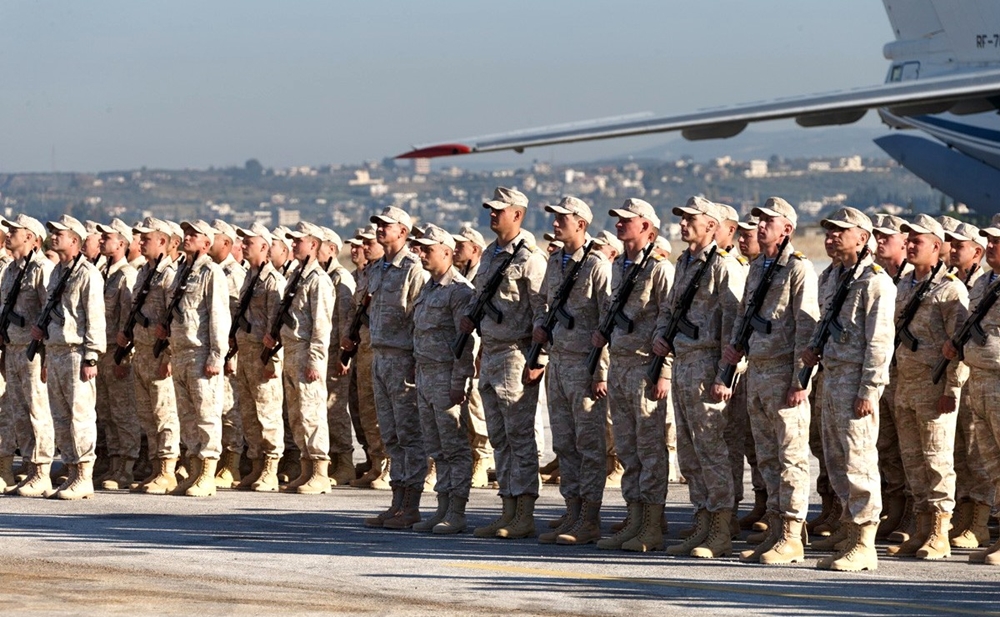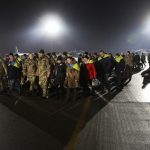RUSSIA MONITOR
Date: 4 January 2018
New Year, Same War
The attack on the Russian air base in Syria in Khmeimim confirms the forecasts of the Warsaw Institute, according to which the accomplishment of Russia’s military campaign in Syria, announced by Vladimir Putin on December 11, does not necessarily mean the end of the conflict for Russia. The Islamic rebels have seriously undermined Putin’s image when they attacked the heart of the Russian military contingent in Syria on New Year’s Eve.

As we wrote in our Russia Monitor on December 12, 2017, “contrary to the official declarations of Putin, Shoygu and generals, the Syrian war is not over yet for Russia. It is estimated that in Syria there are still between three and twenty thousand IS fighters. Having lost the areas that had to be defended, the jihadists had complete freedom to maneuver”. The war has entered its guerrilla phase, which basically means that Russian losses will not decrease but they may even increase.
On January 4, Russia’s Ministry of Defense confirmed media reports on a mortar attack carried out by Syrian militants against the Khmeimim Air Base on December 31. According to official information, two Russia military personnel were killed. At the same time, the ministry denies that seven Russian aircrafts were destroyed in the attack. Interestingly enough, the military base seems to be perfectly secured since it is located far from larger rebel groups in the rear of the government army, in the area inhabited by Assad supporters. Such a state of affairs shows the possibilities of the enemies of government in Damascus and in Russia. The attack on the Russian base in Khmeimim seems to be first and foremost symbolic since it is the place where Vladimir Putin has recently announced a troop withdrawal due to the victorious end of the conflict.
The war, which is not over yet, constitutes an excellent training ground for the Russian army. During an extended meeting of the Russian Defence Ministry Board, Russia’s Defence Minister Sergey Shoygu informed that over 48,000 soldiers and officers had gained “invaluable combat experience” in Syria. Thus, he has only confirmed that the actual scope of Russia’s military presence in Syria had been much larger than it had been officially declared. It is known that in Syria there were also soldiers from numerous military units that, according to official information, were not a part of the Russian contingent protecting Syrian Air Forces and did not belong to the military personnel of Russia’s military bases in the country. Among them, there are mostly marines, signallers, Spetsnaz officers and artillery officers. A majority of them had previously participated in military activities both in Crimea and the Donbass.
In addition, personnel changes within the structures of high-rank Russian command constitute another important result of the Syrian operation. Officially, the end of the conflict opened the way for the promotion of a significant group of high-ranking officers who are currently gaining some combat experience in Syria. Russia has new commanders of the Aerospace Forces, the Central Military District and the Eastern Military District. The first position is now occupied by Colonel General Sergey Surovikin, former commander of the Group of Forces in Syria. Previously, he had commanded the Eastern Military District and he had been in charge of setting up the Russian Military Police. Interestingly, he is not an aviator but an army officer; that is why the fact he was promoted as a commander of aviation, air defence and aerospace forces may be quite astonishing. Lieutenant General Alexander Lapin was appointed Russia’s Central Military District Commander. Until recently, he had been the chief of staff of Russia’s contingent in Syria. He is a tank crew member and he graduated from the famous military school in Kazan, Russia. There is also another tank crew member (however he graduated from the military school in Chelyabinsk), Colonel General Alexander Zhuravlyov, who has become the new commander in the Eastern Military District. He was the commander of the Russian Group of Forces in Syria. The same position had been previously held by Colonel General Andrei Kartapolov, the commander of the Western Military District, a service which seems to be Russia’s key service in the event of a war with NATO.
All texts published by the Warsaw Institute Foundation may be disseminated on the condition that their origin is credited. Images may not be used without permission.














